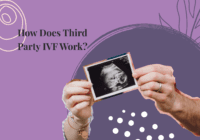Miscarriages – let’s talk about them, because not enough people do. The taboos surrounding miscarriage make the loss even more devastating, because while other forms of loss are openly grieved, the stigma of losing a baby can be extremely isolating.
Miscarriages happen when you lose a fetus before the 20th week of pregnancy. Most commonly, they happen in the first eight weeks. Even though the experience is quite common, we don’t talk about it enough.
At Dr. Tanya’s Fertility Centre, we think it’s time to break the taboo of miscarriage.
Miscarriage Is Very Common Despite Taboos
Although you may feel alone, miscarriages are very common. According to the Society of Obstetricians and Gynecologists of Canada (SOGC), about 15 to 20% of those expecting will experience pregnancy loss. Some estimates suggest that—including those who don’t yet know they’re pregnant—as many as half of pregnancies may end in miscarriage.
Despite this reality, people think miscarriage is uncommon. Interestingly, respondents of a 2016 survey wrongly believed that miscarriage happened in only 5% of pregnancies.
Although it’s normal to wonder about the cause, remember that miscarriage isn’t your fault. Many times, genetic or chromosomal abnormalities prevent the baby from developing properly.
If you have a miscarriage, you still have a very good chance of having a future healthy pregnancy.
Reasons for Selecting Third-Party IVF Treatment
The taboo of miscarriage may lead you to believe that you’re wrong for being so affected by the loss. In one study, women expressed that the silence surrounding miscarriage—and others’ discomfort talking about it—led to loneliness and isolation.
In some cases, people may follow society’s tradition of announcing pregnancy only past the 12th week, when the risk of miscarriage drops. If you miscarry before your announcement and others don’t know, it may feel particularly lonely.
Although the taboos of miscarriage make it difficult to talk about, it’s common to have intense feelings of grief.
According to researchers, depressive symptoms after a miscarriage are often underestimated. In a 2020 study, about 20% of women who miscarried later had depression and/or symptoms of anxiety. Other research predicts an even bigger impact, estimating that up to 55% have depressive symptoms shortly after.
Those symptoms can last for 1 to 3 years and may lead to post-traumatic stress disorder (PTSD). Three months after their miscarriage, 45% of women experienced PTSD symptoms. They also reported that the loss affected their professional life and relationships with others.
Along with anxiety and depression, a 2013 survey found that out of those who miscarried:
- 41% felt alone
- 47% felt guilty
- 28% felt ashamed
- 41% reported feeling that they had done something wrong
Non-pregnant partners can also be intensely affected by the loss. A 2019 study found that men felt significant grief after a miscarriage. However, they felt there was little acknowledgment of their devastation.
Normalizing Miscarriage Grief
Since many people don’t talk about their miscarriage grief, you might wonder if you’re the only one who feels so strongly. You aren’t. When people open up about their loss, you learn they’ve been there too.
Beyonce calls her miscarriage “the saddest thing I’ve ever been through.” Chrissy Teigen described it as “the kind of deep pain you only hear about, the kind of pain we’ve never felt before.” Singer Pink said, “you feel like your body hates you and like your body is broken, and it’s not doing what it’s supposed to do.”
Other celebrities have openly talked about stigmas in an effort to smash the taboo of miscarriage, like Duchess of Sussex, Meghan Markle.
“Losing a child means carrying an almost unbearable grief, experienced by many but talked about by few,” she said. “Yet despite the staggering commonality of this pain, the conversation remains taboo, riddled with shame, and perpetuating a cycle of solitary mourning.”
Michelle Obama has also spoken up to help other parents.
“I felt lost and alone and I felt like I failed, because I didn’t know how common miscarriages were, because we don’t talk about them,” she said. “I think it’s the worst thing that we do to each other as women: not share the truth about our bodies and how they work and how they don’t work.”
Research suggests that it’s important people continue to speak out. In one study, 28% of respondents said their feelings of isolation were made better by a public figure who opened up about their miscarriage.
4 Ways to Cope with Miscarriage
When coping with miscarriage, allow yourself time for healing. If you can, consider taking time off work or chores so you can prioritize your mental health. Below are some other tips.
#1 Honor Your Baby
Finding a way to memorialize your baby can help add meaning to the grief process:
- Plan a memorial or gathering
- Plant a tree or flower
- Donate to a charity
- Hang an ornament or display a statue
- Wear a piece of jewelry that symbolizes your baby
#2 Seek Social Supports
Identify people in your life who you feel safe talking to about the miscarriage. This may be your partner, close friends, or family. One study showed that women also find comfort in other women who previously experienced a miscarriage.
#3 Support Groups
To strengthen your social support, here are some ideas:
- Support groups. The Pregnancy and Infant Loss (PAIL) Network Group offers support groups across Ontario. Local Bereaved Families of Ontario (BFO) affiliates also offer support.
- One-to-one peer phone support. Request free support offered by the PAIL network.
- Facebook groups. There are many private Facebook groups you can join to connect with people worldwide who are going through the same thing.
- View a full list of resources in each province on October15.ca
#4 Journaling
Some studies show that journaling about your emotions can help you cope with grief. To start journaling, write down how you’re feeling at the moment. Try to let it all out. If you don’t know where to begin, use these two prompts:
- Tell me about the miscarriage.
- Tell me how you feel about the miscarriage.
Many people also benefit from professional therapy. Do an online search or ask your doctor for recommendations.
How To Help Someone Else With Miscarriage
When offering support to someone going through a miscarriage, remember to be patient. The grief is as real as any other loss.
Talk About the Taboo
The taboo of miscarriage makes it difficult to talk about. While it’s easy to look away from others’ pain, sometimes they need someone to sit in it with them. If you’re a friend, ask “what happened?” To check in, ask “how are you feeling?” Without pushing, give them opportunities to open up.
Validate
It’s normal to feel intense grief after a miscarriage. Validate those feelings by letting the person know it’s understandable they’re devastated. Validate that it’s not their fault and that you’re there for them through the grief.
Listen, Don’t “Fix”
Often we want to take away someone’s pain, so we look for and offer solutions. We might discuss fertility options or ways they can instantly cheer up. Know that pregnancy loss is a pain you can’t take away. Instead, try to simply listen to the person and ask them follow-up questions if appropriate. Consider this quote:
“What everyone has in common is that no matter how they grieve, they share a need for their grief to be witnessed. That doesn’t mean needing someone to try to lessen it or reframe it for them. The need is for someone to be fully present to the magnitude of their loss without trying to point out the silver lining.” – David Kessler, Finding Meaning: The Sixth Stage of Grief
Learn More About Miscarriage
It might feel like you’re alone, but you aren’t. Most people who miscarry have successful future pregnancies.
Get more information about miscarriage on our Instagram.





